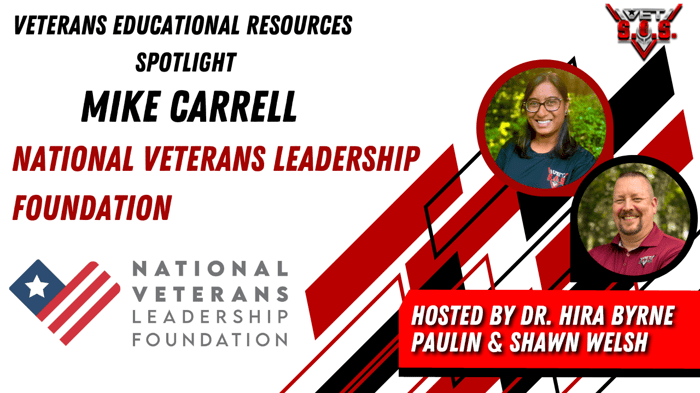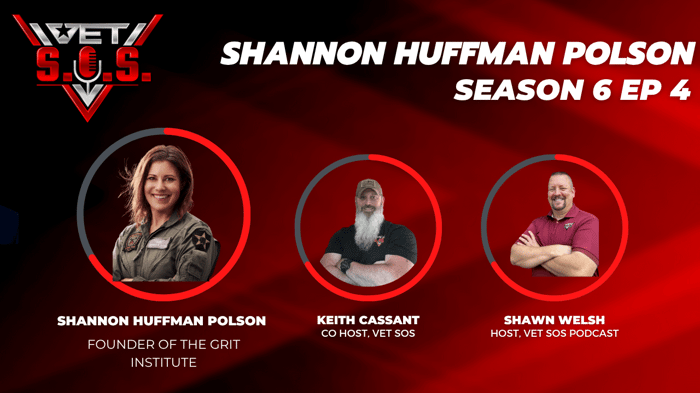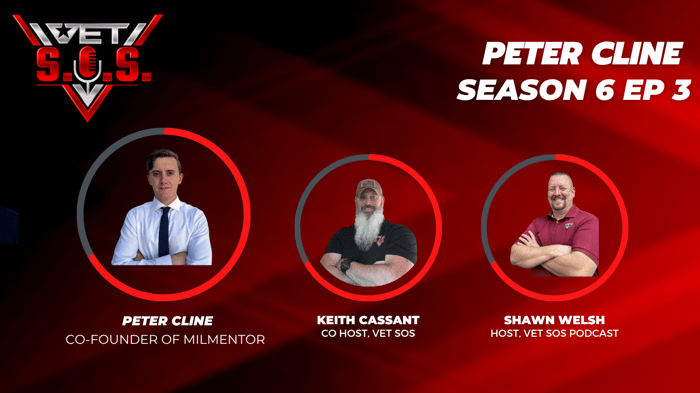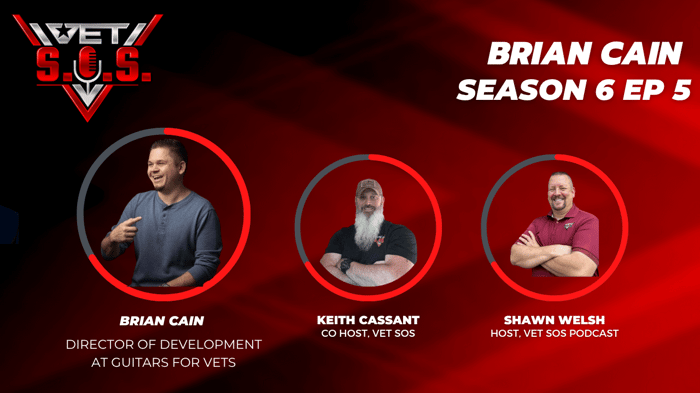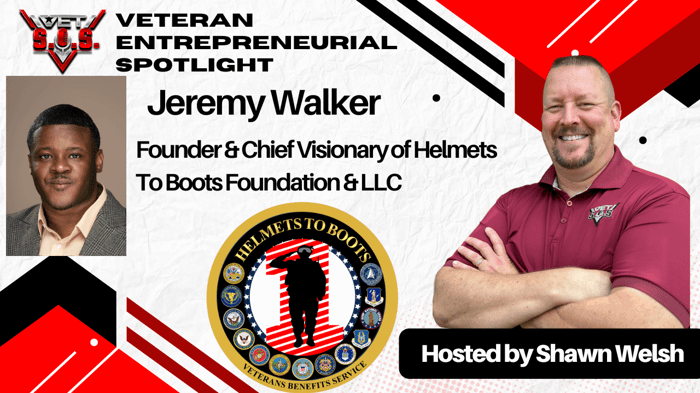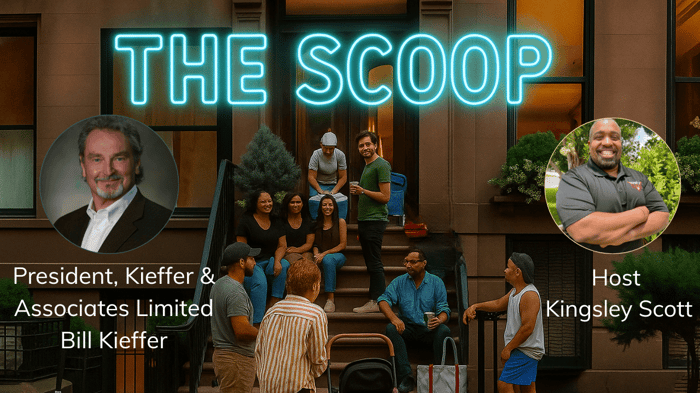Empowering Military-Connected Students: The Mission of the National Veterans Leadership Foundation
When military members transition from service to civilian life, education is often a critical bridge to long-term success. But the path through higher education can be filled with unexpected challenges—from navigating benefits and finding community to gaining relevant career experience. That’s where the National Veterans Leadership Foundation (NVLF) steps in. On a recent episode of the VET S.O.S. Veteran Educational Resources Spotlight, co-hosts Dr. Hira and Shawn Welsh spoke with Mike Carrell, Chief Operating Officer of NVLF, to uncover how his team is leading a nationwide movement to strengthen veteran support in higher education.
From Air Force to Academia: Mike Carrell’s Unplanned Transition
 Mike Carrell
Mike CarrellMike Carrell retired as a colonel from the United States Air Force after 23 years of service in air operations, strategic planning, and military education. But his transition to civilian life came faster than expected—just 90 days. With no time for traditional transition programs, Mike focused on what he didn’t want to do, such as entering defense contracting, and instead leaned into opportunities that matched his values: service, leadership, and meaningful work.
A casual conversation at Ohio State University, where he was serving in an ROTC role, led to the chance to help build the university’s military and veterans program. What began as a part-time role turned into a 12-year career and a legacy of veteran support that would eventually expand nationally through NVLF.
The Birth and Growth of NVLF
Carrell’s impact at Ohio State was profound—helping to create a top-ranked military and veteran services office. But his vision extended beyond one university. Through NVLF, he has expanded these efforts to more than 75 colleges and universities nationwide.
 NVLF's mission is clear: to enhance the higher education experience for military-connected students, including veterans, active-duty personnel, Guard and Reserve members, ROTC cadets, and military family members. Carrell emphasized that if a university doesn’t serve all of these groups, NVLF likely won’t partner with them. The focus is improving veteran support in higher education.
NVLF's mission is clear: to enhance the higher education experience for military-connected students, including veterans, active-duty personnel, Guard and Reserve members, ROTC cadets, and military family members. Carrell emphasized that if a university doesn’t serve all of these groups, NVLF likely won’t partner with them. The focus is improving veteran support in higher education.
Four Pillars of NVLF’s Approach
NVLF’s work is structured around four strategic pillars to assist with veteran support in higher education:
1. Empowering Student Leaders
The foundation’s signature programs—Military Community Advocates (MCAs) and student fellowships—equip student veterans to lead on campus. The MCA initiative provides scholarships and leadership roles, placing students in positions like career services or student affairs where they can act as force multipliers, helping peers navigate their college journey.
2. Institutional Engagement
NVLF works directly with colleges to build out veteran programs that go beyond surface-level support. By collaborating with university departments, fundraisers, and faculty, NVLF ensures that support for veterans is embedded into the core of academic and campus life.
3. Community Support and National Conferences
Through grants and hosted events, NVLF helps universities raise awareness of their veteran populations, encouraging deeper community ties and alumni engagement. The National Leadership Forum, an annual conference, brings together veterans’ offices, communications teams, development staff, and career services to foster whole-campus strategies.
4. Career Readiness and Partnerships
Career preparation is a major emphasis. NVLF connects students with veteran-friendly employers and hosts career cluster initiatives around fields like entrepreneurship, STEM, and health. A standout partner is Opline, a veteran-run career platform offering over 500,000 jobs and customized job matching based on education and military experience.
Tools That Make a Difference: Oplign and Beyond
One of NVLF’s most powerful partnerships is with Oplign, a veteran-focused job search tool that integrates military experience and education into its job-matching algorithms. Unlike traditional platforms, Oplign draws from federal listings, corporate postings, and military-friendly jobs—all in one place. The platform is completely free for veterans and their families, making it an essential resource for those seeking employment post-graduation.
Oplign's success lies in its customization. Veterans can enter credentials, narrow down locations, and explore career shifts by analyzing which certificates or degrees open up additional job paths. It's a smart, data-driven approach to ensuring military-connected students don't just graduate—they launch.
Addressing the Internship Gap
Carrell points out a critical statistic: while roughly one-third of college students participate in internships, only 5% of student veterans do the same. That’s a major gap in career readiness. NVLF is working to close it by urging students to seek internships early and by encouraging universities to create built-in internship pathways.
Internships serve as vital bridges between academic knowledge and workplace application, especially for veterans who are translating military leadership into corporate or nonprofit settings. Whether it’s a practicum, externship, or summer role, early career experiences can be decisive in post-college outcomes.
Real-World Advice for Student Veterans
One of Carrell’s most powerful insights was simple but vital: “Focus on what you don’t want to do.” That mindset can help narrow options and clarify career paths. He also stresses that veterans must actively engage with campus life—whether through leadership roles, internships, or community service. This involvement not only sharpens professional skills but also helps translate military experience into actionable civilian outcomes.
Additionally, Carrell encourages students to attend universities where they already have a support system, especially when transitioning out of active-duty service. Family proximity, familiar environments, and mental health stability are just as important as academic rankings or campus amenities.
Collaboration Over Competition
NVLF’s model champions collaboration between institutions, not competition. It's all about veteran support in higher education. Carrell highlights how universities across the country share best practices, resources, and even refer students to each other based on fit and support capabilities. In an era where higher education often feels competitive, NVLF fosters a mission-first mindset where the student’s success comes before institutional pride.
Final Thoughts: A Lifeline for Student Veterans
The National Veterans Leadership Foundation is more than just a support organization—it’s a national movement aimed at embedding veteran support in higher education through leadership, collaboration, and innovation. As NVLF continues to grow across the Big Ten, the SEC, the ACC, and beyond, the message is clear: our military-connected students deserve more than basic access—they deserve excellence.
Whether you’re a student, an administrator, or a veteran service provider, NVLF’s programs provide the structure and inspiration needed to turn educational opportunity into lifelong success. Help us provide more veteran support in higher education.
